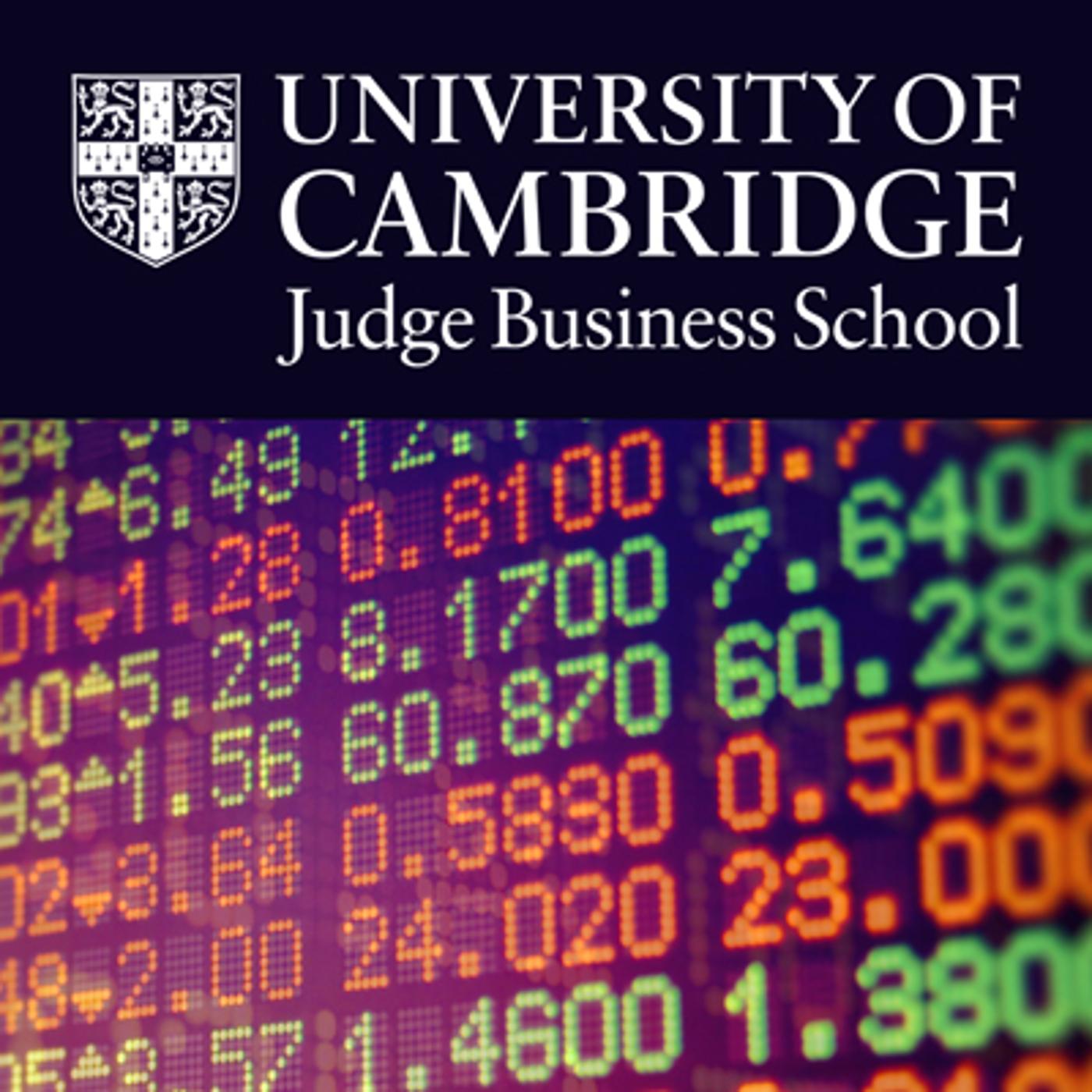Discover Cambridge Judge Business School Discussions on Finance
Cambridge Judge Business School Discussions on Finance

Cambridge Judge Business School Discussions on Finance
Author: Cambridge University
Subscribed: 10Played: 39Subscribe
Share
© 2014
Description
Cutting-edge expert commentary, analysis and business insights on the financial issues of the day from Cambridge Judge Business School's global faculty, associates and guest speakers.
26 Episodes
Reverse
The Islamic finance industry is facing a great future, not only because it offers a stable banking system, but also because its benefits are being realised by a greater number of people.
Launching his new Cambridge Judge Business School Executive Education programme on Islamic finance, Dr Kamal Munir, Reader in Strategy & Policy at Cambridge Judge Business School, says the British government's move to issue an Islamic bond is good news for the industry.
The Islamic finance industry is emerging as a crucial component of the future global financial architecture. Cambridge Judge Business School Executive Education is launching a new programme focused on the sector.
Dr Kamal Munir says Islamic banks weathered the financial crisis better and outperformed all conventional banks. Their unique services are attracting investors and clients in many parts of the world outside their traditional areas.
Renowned finance academics and leading practitioners will rub shoulders this summer when Cambridge Judge Business School hosts the European Finance Association's AGM.
Staging this prestigious event (a first for Cambridge) will enhance the research profile of the business school says the Association's Vice President, Raghavendra Rau, who chairs the EFA's organising committee.
The European Union's move to cap bankers' bonuses is a step in the right direction - it's the first time that the EU has reached a consensus on legislation for the sector - but does not go far enough, says Dr Bang Dang Nguyen, who feels all areas of banking should face greater regulation.
Dr Pedro Saffi repeats his call for greater transparency around proxy voting and the part played by institutional investors as he outlines a paper to the prestigious American Finance Association. Corporate governance is important to institutional investors, and the proxy process is an important channel for corporate governance.
Professor Raghavendra Rau talks about his Executive Education programme, the Cambridge Financial Management Certificate of Achievement, which offers a comprehensive introduction to the major concepts of the theory underpinning finance.
The programmes available in the Certificate explore finance from different perspectives, and are aimed at those switching into financial positions or those who've already made the transition.
Cambridge Judge Business School academics Professor Raghavendra Rau and Dr Bang Dang Nguyen agree that the so-called 'Shareholder Spring' that began to emerge in the spring of 2012 proved to be a damp squib.
Fresh research led by Professor Raghavendra Rau, Sir Evelyn de Rothschild Professor of Finance at Cambridge Judge Business School, has revealed that firms bribing their way to contracts under-perform for up to three years before and after securing the work for which the bribe was paid.
After two decades of excessive development, Western banks are going through a shrinkage process and will emerge as less exciting and facing slow growth, forecasts University Lecturer in Finance, Dr Simon Taylor.
Adrian Kyriazi, MD and Head of Greece/Cyprus, Poland & Eastern Europe at Credit Suisse Private Bank, talks about managing in submerging markets and the restructuring of the private bank's business as individual net worth in Greece sank by 40 per cent. Credit Suisse Private Bank is now number one for Greek clients.
Professor Raghavendra Rau suggests that the government-commissioned Wheatley Review into the LIBOR rate rigging allegations should make the banks put their money where their mouths are.
Young male city traders on a winning streak shift their risk preferences and take on too much risk. When they lose money in a volatile market, their hormonal response drives the financial community to being risk averse. Dr John Coates explains "We've been trying to identify the molecules and nervous pathways in the body that contribute to this transformation, that would account for shifts in risk preferences which we think destabilise the financial markets."
Idiosyncratic portfolios and an unconventional approach are two of the findings in the first detailed analysis of John Maynard Keynes' investment philosophy, strategies and trading records by Dr David Chambers and Professor Elroy Dimson. "The popular consensus to have grown up around Keynes is that he was a fantastic investor. Whilst we have not exploded that story, we reveal it is a more nuanced story than this popular view suggests."
History shows that when debtors default and crisis occur, international monetary systems are remade. A new world order will emerge from the current financial crisis, explains Philip Coggan, Buttonwood columnist and Capital Markets Editor at The Economist, and it will be governed by the creditor nation of the future, China.
The current climate is a good time to learn about finance explains Professor Raghavendra Rau.
It's only a matter of time before China's banks begin to make an impact on the rest of the world. By market value and profits they are among the world's biggest, and five of them are internationally the most profitable.
Over confident, highly incentivised chief executives fall short of shareholder expectations, a new study reveals
Regulatory measures are needed says Dr Kamal Munir. It has become too commercial and profits are being made from the poorest of the poor.
Financial systems, real estate markets and the changing face of banks, three experts give their cautiously hopeful views on how smart regulation can stimulate these interlinked sectors.
America's regulators now rely on 'fair value' with additional historical or mark-to-market input. Europe's regulators view 'fair value' as the way forward. Unless there is a compromise on international accounting practices, investors face confusion, says Dr Amir Amel-Zadeh.






